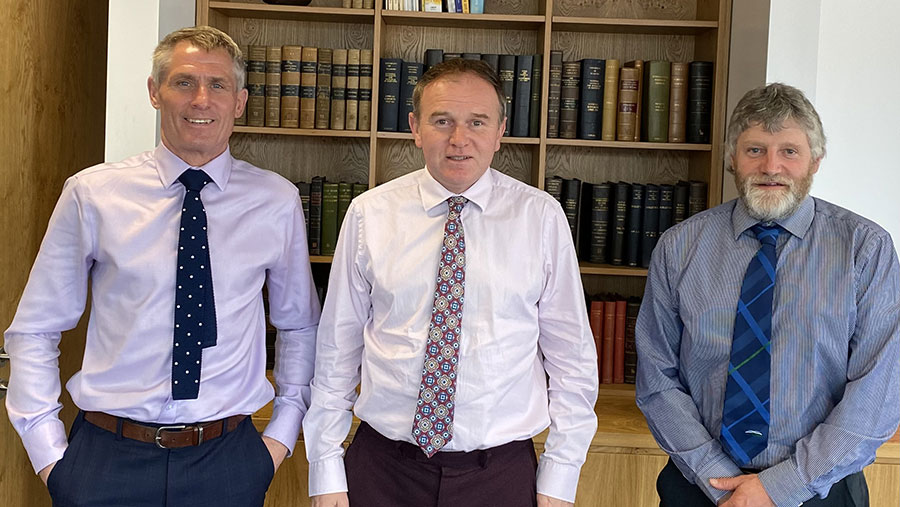‘Maintain our £620m budget’, Scots union tells Eustice
 NFUS president Martin Kennedy (right) and director of policy, Jonnie Hall (left) with Defra secretary George Eustice © NFUS
NFUS president Martin Kennedy (right) and director of policy, Jonnie Hall (left) with Defra secretary George Eustice © NFUS Farm leaders are demanding no cuts to the UK government’s £620m budget for farm support in Scotland after 2025, warning that it would threaten the profitability of the sector.
NFU Scotland held talks with Defra secretary George Eustice on Monday 9 May and wants clarity on future levels of funding from Westminster.
While a direct payment regime will continue in Scotland beyond 2025, what is not clear is the scale of the budget.
See also: Scottish government reaffirms backing for direct payments
NFU Scotland wants current agricultural and rural funding from the UK government to continue after 2024-25, and for that money to be ring-fenced by the Scottish government, to support active farming and crofting – but there are no guarantees of that.
Currently, the total budget for supporting agriculture in Scotland is about £637m in total – the remainder comes from the Scottish government.
NFU Scotland president Martin Kennedy, who attended the meeting with the union’s director of policy, Jonnie Hall, said certainty was needed about funding and budgets in the short to medium term.
“Profitability on a great many Scottish farms and crofts is reliant on the support they receive and, given the unprecedented increases in costs for fertiliser, fuel, animal feed, labour and energy seen this year, the need for certainty on future funding has never been greater,” he said.
In March, the Scottish government said it was committed to a direct farm payment system going forward and that it supported active farming and food production, but it would expect farmers to deliver reduced emissions and improve biodiversity in return.
